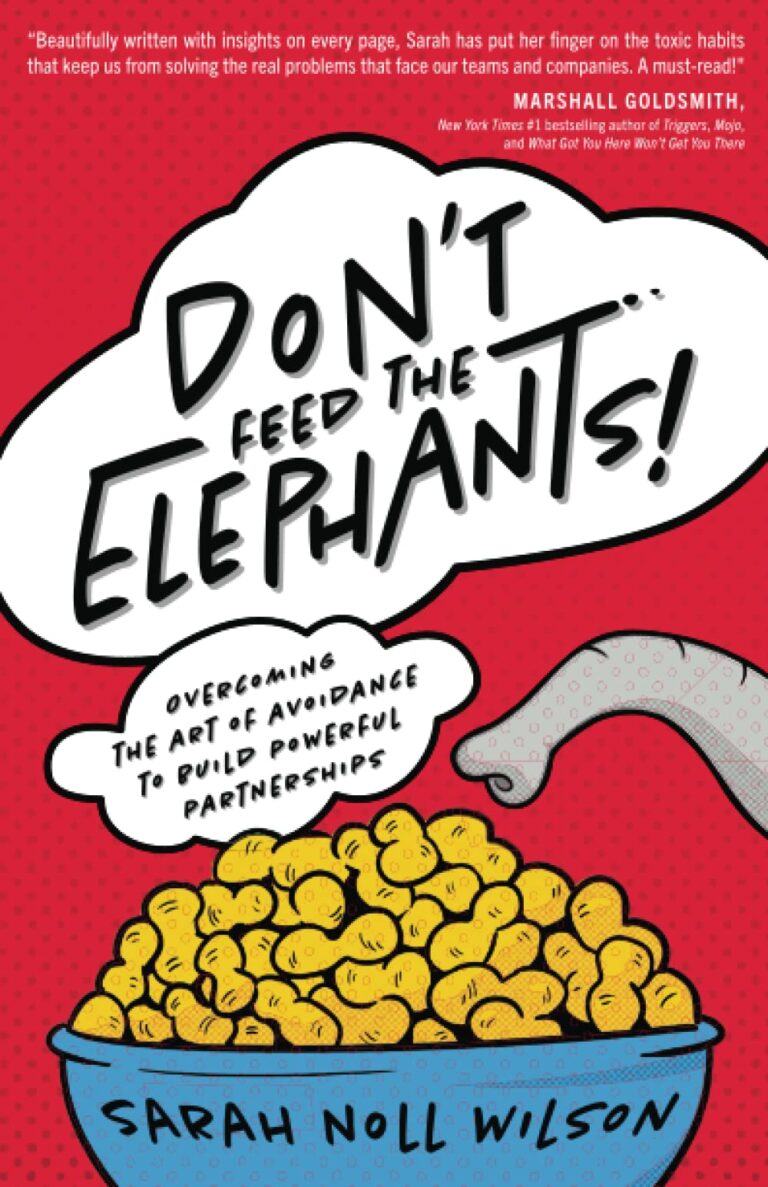When it comes to managing conflict, good advice is always in fashion, especially when an economic recession looms. With DON’T FEED THE ELEPHANTS! (Overcoming the Art of Avoidance to Build Powerful Partnerships), author Sarah Noll Wilson offers just that, delivering a practical “personal workshop” on conflict resolution that should benefit anyone in a leadership role, regardless of their experience.
There’s an old adage that states the only fight you are guaranteed to win is the one you avoid. While this may seem like a sound tactic, Wilson makes a compelling case to the contrary. As she points out in the book’s introduction, conflict avoidance is an elephant in the room–a known “barrier to success” that everyone in the management sector is aware of but that no one wants to address. A self-professed “reformed avoider,” Wilson argues that conflict avoidance is often systemic. Of course, the first step to addressing any conflict is recognizing that there is a problem. According to Wilson, signs that an elephant might be stomping about run the gamut from obvious (knowing glances between team members, fidgeting) to not-so-obvious (silence or arm-crossing). While ‘elephant’ is essentially a blanket term for any sort of team disruption, Wilson takes the metaphor one step further by providing a detailed taxonomy.
Avoidephants (created whenever people “avoid action in an attempt to remove the internal stress of a situation”), Imagiphants (prone to misinterpretation because “anticipating negative situations helps us protect ourselves,” and Blamephants (clumsily tossing blame at the leader) are at the top of a list that also includes Nudgephants and Deflectephants. It may appear a bit silly, but Wilson’s descriptions are incredibly apt. Along with a detailed synopsis, the manager-turned-leadership development consultant offers a detailed case study illustrating each variety of elephant in its natural habitat. From there, Wilson outlines a comprehensive approach to “freeing the elephant.” The information is divided into three sections, and the flow from one topic to another is compelling, logical, and often led with a personal anecdote from Wilson that ties it all together. Be it an early summer job (working as a camp director and ropes course facilitator) or her extensive coaching in the corporate leadership field, Wilson shows time and time again that her methods are rooted in real-world successes.
Despite Wilson’s focus on the workplace, DON’T FEED THE ELEPHANTS! holds value for readers from all walks of life. In fact, anyone in a leadership role, be it a parent, shift leader, or even an elected official, will benefit from Wilson’s insights and techniques. The bottom line: difficult conversations are difficult for a reason, but Wilson’s book emphasizes the value of facing interpersonal challenges head-on. While the pachyderm metaphor occasionally wears thin, Wilson’s advice remains on point from cover to cover.
Sarah Noll Wilson’s guide to conflict resolution, DON’T FEED THE ELEPHANTS! (Overcoming the Art of Avoidance to Build Powerful Partnerships), offers a light-hearted yet highly effective approach to tackling difficult conversations.
~James Weiskittel for IndieReader


